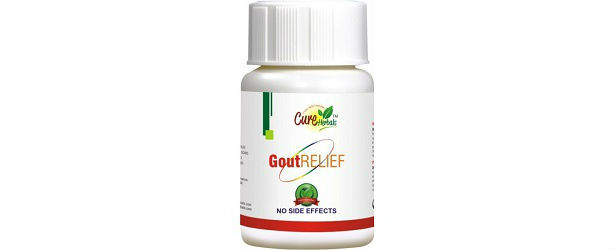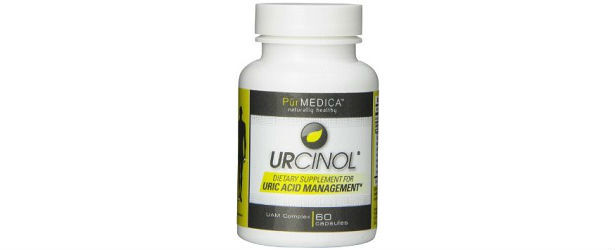
Types of Gout Medications
If you are just learning about gout, it can be overwhelming at first. Not only do you have to learn a whole new way of eating and a whole new lifestyle to control the flares, you also have to understand all of the different gout medication types so that you can make an informed decision about treatment. There are many different types of medications to treat gout and they all do something different. Here is a list of some of the medications used for gout:
Allopurinol (Zyloprim)
Allopurinol helps to lower the levels of uric acid in your blood. It keeps levels of uric acid in your body balanced to prevent them from forming crystals that cause gout symptoms. This can help prevent future gout attacks if you take it long-term.
Side-effects include; Stomach discomfort, diarrhea and drowsiness.
Analgesics
 Analgesics are pain relievers prescribed to relieve the discomfort of gout symptoms. They do not actually treat or cure gout and do not reduce uric acid levels. They can help the fevers you may experience during an acute gout flare. Simple pain relievers like; acetaminophen (Tylenol), hydrocodone (Vicodin), and Codeine do not relieve the inflammation of gout, but can help pain in the beginning of attacks.
Analgesics are pain relievers prescribed to relieve the discomfort of gout symptoms. They do not actually treat or cure gout and do not reduce uric acid levels. They can help the fevers you may experience during an acute gout flare. Simple pain relievers like; acetaminophen (Tylenol), hydrocodone (Vicodin), and Codeine do not relieve the inflammation of gout, but can help pain in the beginning of attacks.
Side-effects include; nausea, vomiting, sleepiness, decreased reflexes, and dependence on Vicodin and Codeine. Acetaminophen does not usually have any side-effects, but too much can cause liver damage.
Colbenemid
This medication is a combination of a popular and long-used gout medication Cholchicine (see below) and Probenecid. Colbenemid works to help with the acute onset of gout and future gout attacks. It relieves symptoms by both blocking the action of uric acid crystals and lowering uric acid levels.
Side-effects include; stomach issues, nausea, diarrhea, dizzy spells, headaches, hair loss, and increased urination.
Cholchicine
Colchicine works by blocking the effects of uric acid crystals in the body to help relieve pain and inflammation. Some people take this medication at higher doses for a short period of time, or smaller doses long-term to prevent future gout flares.
Side-effects include; nausea, diarrhea, headaches and stomach issues.
Corticosteroids
 These work by reducing the inflammation in the body. They are not commonly used due to sometimes serious side-effects and risks, but may be used in more severe cases of gout. Doctors often use steroids when people did not get relief from other anti-inflammatory medications. It is either given as an oral medication or as injections directly into the affected joint(s).
These work by reducing the inflammation in the body. They are not commonly used due to sometimes serious side-effects and risks, but may be used in more severe cases of gout. Doctors often use steroids when people did not get relief from other anti-inflammatory medications. It is either given as an oral medication or as injections directly into the affected joint(s).
Side-effects include; bone loss, weight gain, fluid gain, disruption of the body’s natural steroid production (serious), and increased susceptibility to infection.
Losartan (Cozaar, Hyzaar)
This is usually used as a medication for high blood pressure, but has been found to help lower uric acid levels in the body. This medication may not be used with people who already have low blood pressure.
Side-effects include; dizziness, changes in your heart rate, muscle cramping, fatigue, headache, wheezing, cough, and more. There is a major drug interaction when taken with NSAIDS, so you may need a different anti-inflammatory medication along with it.
NSAIDS or Non-Steroidal Anti-Inflammatory Drugs
These medications lower inflammation in the joints and can also help relieve pain. They can be taken during an initial flare up, but not usually used for long periods because of the effects on the stomach. Aspirin is an NSAID but not used for gout because aspirin can increase uric acid levels.
Side-effects include; nausea, vomiting, ulcers, and increased risk of bleeding.
Probenecid (Benemid, Probalan)
 Probenecid can help lower the levels of uric acid in the body by increasing the amount of uric acid excreted by your kidneys. This medication is often used for people with chronic gout.
Probenecid can help lower the levels of uric acid in the body by increasing the amount of uric acid excreted by your kidneys. This medication is often used for people with chronic gout.
Side-effects include; fast heart rate, rash, puffy eyes, lower back pain, trouble urinating, cough, and fast breathing.
Sulfinpyrazone (Anturane)
This medication helps the body balance uric acid levels and can even help with prevention of gout attacks. It is commonly used in people who have both chronic gout and those who have intermittent gout flares.
Side-effects include; stomach upset, ulcer, anemia, and sometimes rashes.
Regardless of the medication you and your doctor decide is best for you, it is important to make healthy lifestyle and dietary changes to help you heal from gout faster.
TOP 5
GOUTTreatments |
|||||
| GoutClear | Goutezol | Flamasil | GR-911 | Uricinex | |
|---|---|---|---|---|---|
| 1 | 2 | 3 | 4 | 5 | |
| Price (1 bottle) Price (6 bottles) Best Value |
$49.95 $135.70 |
$59.95 $359.70 |
$42.95 $257.70 |
$39.95 $169.70 |
$29.95 $179.70 |
| Overall Rating | 99.10% | 78% | 73.50% | 62.40% | 62% |
| Effectiveness* |





|





|





|





|





|
| Speed of Results* | Extremely Fast | Fast | Average | Slow | Slow |
| Quality of Ingredients | Premium | Good | Good | Average | Unknown |
| Customer Satisfaction Evaluation | 99.10% | 80% | 75.20% | 73% | 61.10% |
| Safety Evaluation | Safe for Use | Safe for Use | Safe for Use | Safe for Use | Safe for Use |
| Customer Service Rating |





|





|





|





|





|
| Reorder Rate | Highest | Good | Average | Average | Average |
| Return Policy | Risk Free | Unused | Unopened + Restocking Fee | Unopened | 2 opened only |
| Success Rate | 97.30% | 77.30% | 73% | 75.10% | 62% |

 Subscribe Now
Subscribe Now











